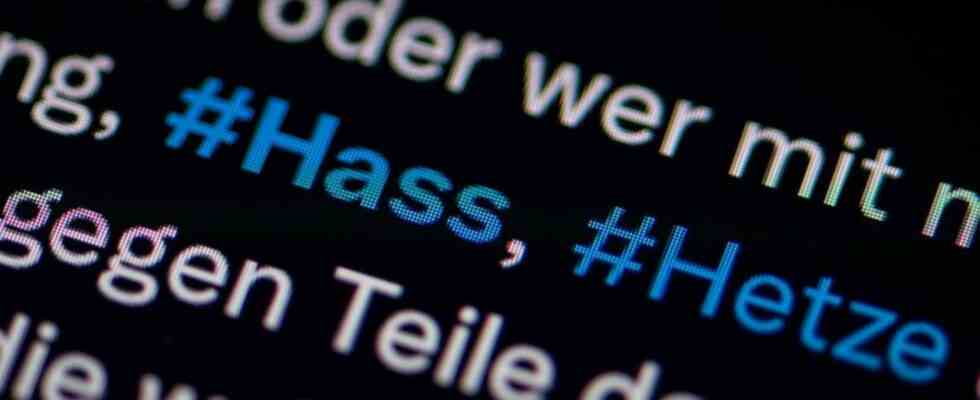hate on the web
When athletes are not perceived as human beings
Most recently, the football referee experts “Collina’s heirs” withdrew from Twitter after a plethora of insults. photo
© Fabian Sommer/dpa
Alleged football fans direct their anger against athletes, officials and experts on the Internet. Various campaigns show that the agitators are not that easy to oust.
Death threats, hatred and hate speech: supposed football fans insult and threaten athletes, officials and experts on the Internet.
Basketball national player Dennis Schröder received death wishes after the German quarter-final success against Greece at the European Championship. After hundreds of insults, the referee experts from “Collinas Erben” have withdrawn from Twitter for the time being. Many users on social media also hate the upcoming RB Leipzig sports director Max Eberl, who withdrew from Borussia Mönchengladbach in spring because of his health condition.
Fan researcher Jonas Gabler does not see any noticeable increase in agitation in the hostilities. “I wouldn’t say that it has gotten worse or worse. It’s a phenomenon that has existed since the beginning of social media. And with more members, the negative comments also increase,” said the managing director of the Fan Cultures and Sport Competence Group related social work (Kofas) of the German Press Agency.
Athletes are perceived as media art figures
“Social media has significantly lowered the threshold for expressing one’s feelings. Athletes are often not perceived as people, but as media artificial figures,” added Gabler. According to a study by the University of Leipzig, among 1013 participants, 24 percent of those questioned from across society experienced insults, threats or hatred, the university announced at the end of August. Two years ago it was 18 percent.
Athletes are the focus of public interest. And the limelight invites the haters to hate. Midfielder Niklas Schmidt from Bundesliga soccer club Werder Bremen therefore went offline: “I’ve withdrawn from social media. That’s the only way. Nowadays everyone can write whatever they want without being recognized,” he said NDR. Werder defender Mitchell Weiser also had to listen to a lot of crap after moving from Leverkusen to Bremen and therefore withdrew temporarily.
Teammate Niclas Füllkrug has found a solution for himself: “It can hit some people mentally and accordingly I try to keep it within limits and not be so active there.” Some players are already building their future for later with their online presence – and cannot do without it. “For many, it’s an opportunity to build a community with which you can later – if you depend on it – earn money,” said Füllkrug.
One thing is clear: there is not only hate. But despite many benevolent comments, the negative ones often stick. Or the number of attacks is unbearable. The makers of the Twitter account “Collinas Erben” had reached the tolerable level from the point of view of the referee experts. After analyzing a handball in the Bundesliga game between Hertha BSC and Leverkusen, the makers received more than 200 insults.
To the chagrin of many fans, the experts drew consequences and have since taken a break from Twitter. Will they come back? Open. “If you then read for the 220th time that you are incompetent, a son of a bitch, have no idea, heard deleted or kicked up the DFB’s ass, then at some point it will be too much,” co-founder Alex Feuerherdt told Deutschlandfunk.
Stars withdraw from the network
In the past, professionals like Toni Kroos and Niklas Süle drew attention to hate and bullying on the internet. In a video they reported defamatory messages. With ex-Arsenal professional Thierry Henry, a mega-star withdrew from the Internet last year and complained about racism and bullying with a boycott.
There was even a social media boycott in English football that same year. But it wasn’t sustainable. After England lost the final of the European Football Championship, players Marcus Rashford, Jadon Sancho and Bukayo Saka were subjected to racial slurs a few months later after failing to score in the penalty shoot-out. As a result, some users were arrested and later convicted.
Werders Füllkrug hopes to find a solution to the online rush at some point. He has one suggestion ready: “Perhaps such topics should be considered in a school subject, how one behaves in the media and what that does to people.”

